You are here
New Releases
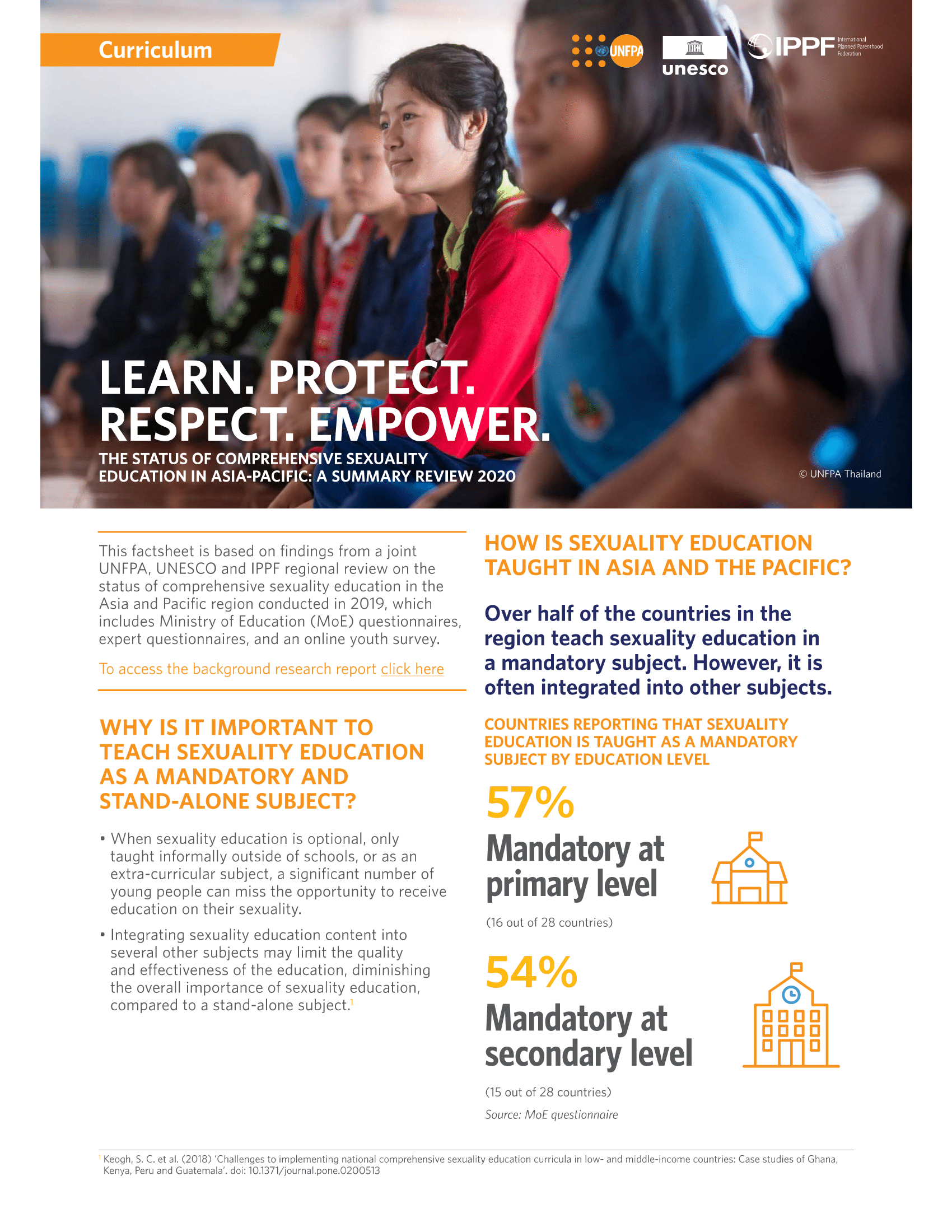
Curriculum for comprehensive sexuality education
This factsheet is part of the review, LEARN. PROTECT. RESPECT. EMPOWER. The Status of Comprehensive Sexuality Education In Asia-pacific: A Summary Review 2020. School-based age-appropriate comprehensive sexuality education (CSE) is an effective means of reaching a large population of children and young people, particularly where rates of school participation are high. This overview of the status of in-school CSE in Asia and the Pacific provides a strong evidence base on the reach and impact of this across the region.
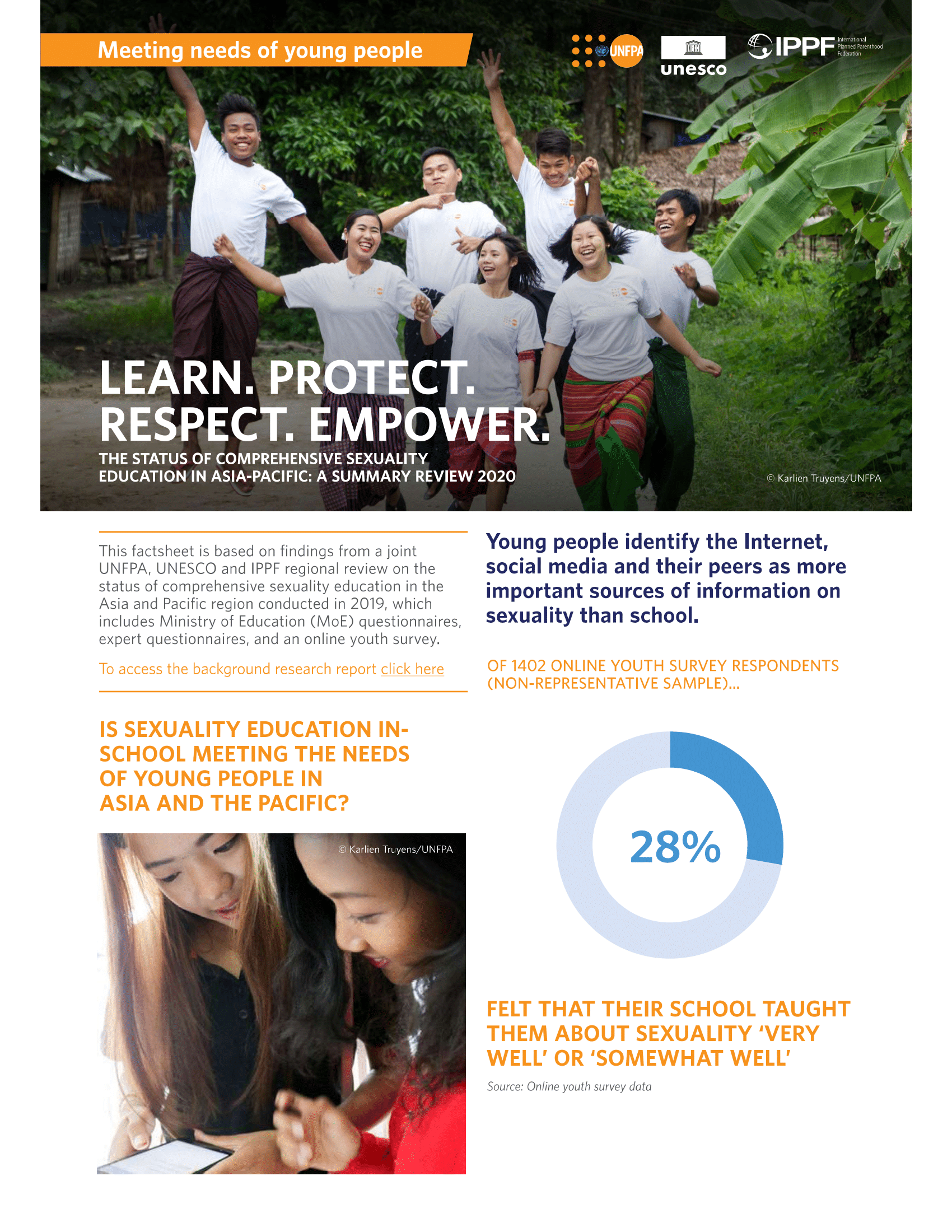
Meeting needs of young people for comprehensive sexuality education
This factsheet is part of the review, LEARN. PROTECT. RESPECT. EMPOWER. The Status of Comprehensive Sexuality Education In Asia-pacific: A Summary Review 2020. School-based age-appropriate comprehensive sexuality education (CSE) is an effective means of reaching a large population of children and young people, particularly where rates of school participation are high. This overview of the status of in-school CSE in Asia and the Pacific provides a strong evidence base on the reach and impact of this across the region.
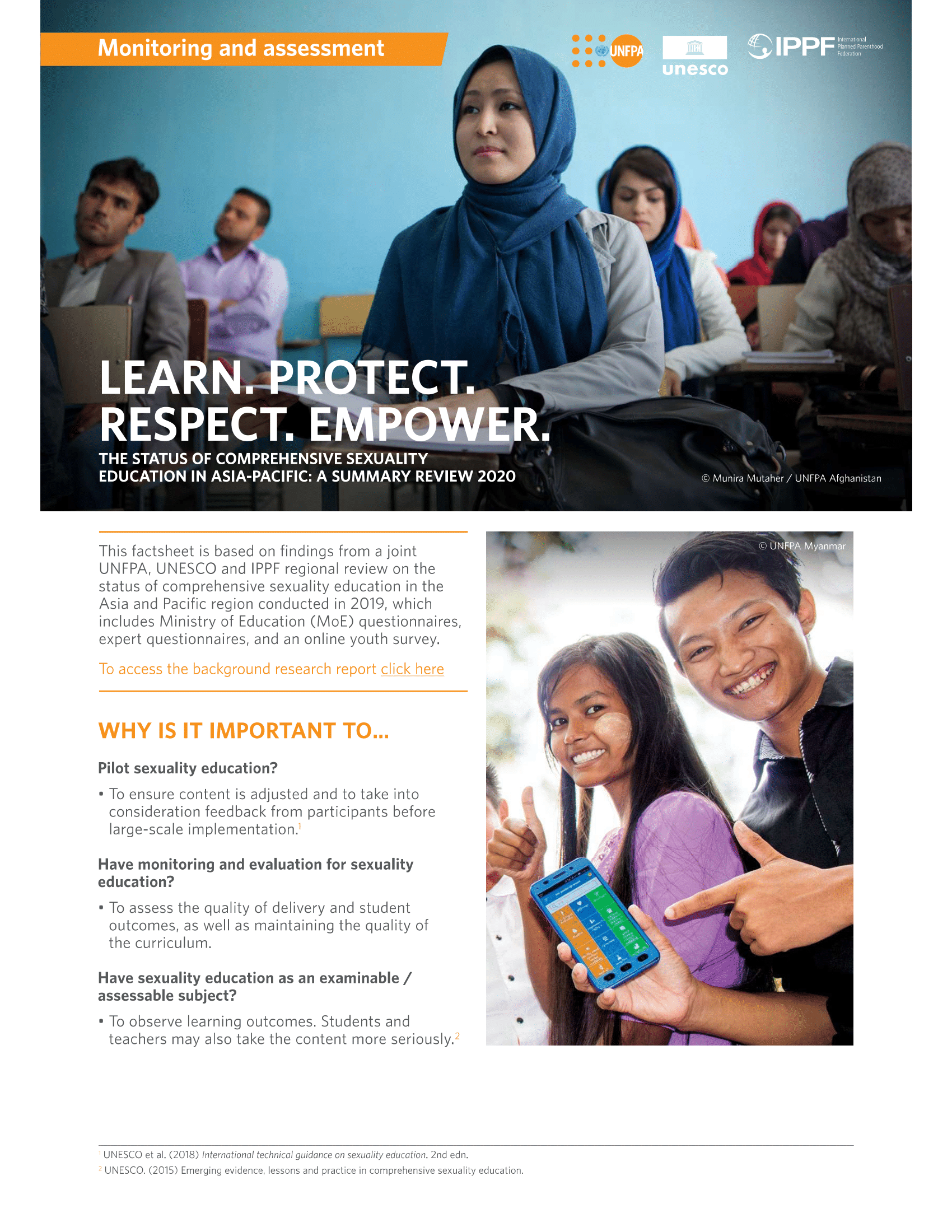
Monitoring and assessment for comprehensive sexuality education
This factsheet is part of the review, LEARN. PROTECT. RESPECT. EMPOWER. The Status of Comprehensive Sexuality Education In Asia-pacific: A Summary Review 2020. School-based age-appropriate comprehensive sexuality education (CSE) is an effective means of reaching a large population of children and young people, particularly where rates of school participation are high. This overview of the status of in-school CSE in Asia and the Pacific provides a strong evidence base on the reach and impact of this across the region.
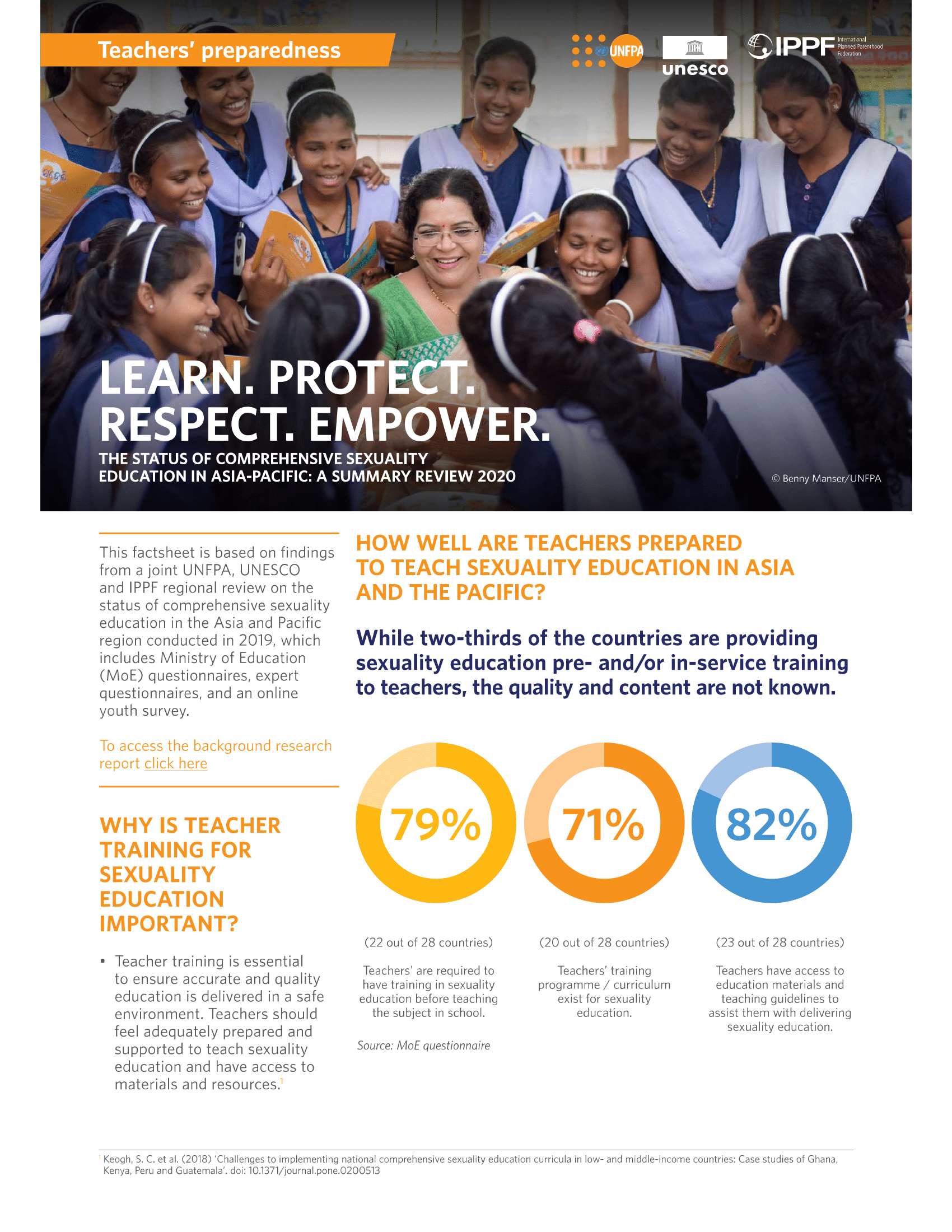
Teachers’ preparedness for comprehensive sexuality education
This factsheet is part of the review, LEARN. PROTECT. RESPECT. EMPOWER. The Status of Comprehensive Sexuality Education In Asia-pacific: A Summary Review 2020. School-based age-appropriate comprehensive sexuality education (CSE) is an effective means of reaching a large population of children and young people, particularly where rates of school participation are high. This overview of the status of in-school CSE in Asia and the Pacific provides a strong evidence base on the reach and impact of this across the region.
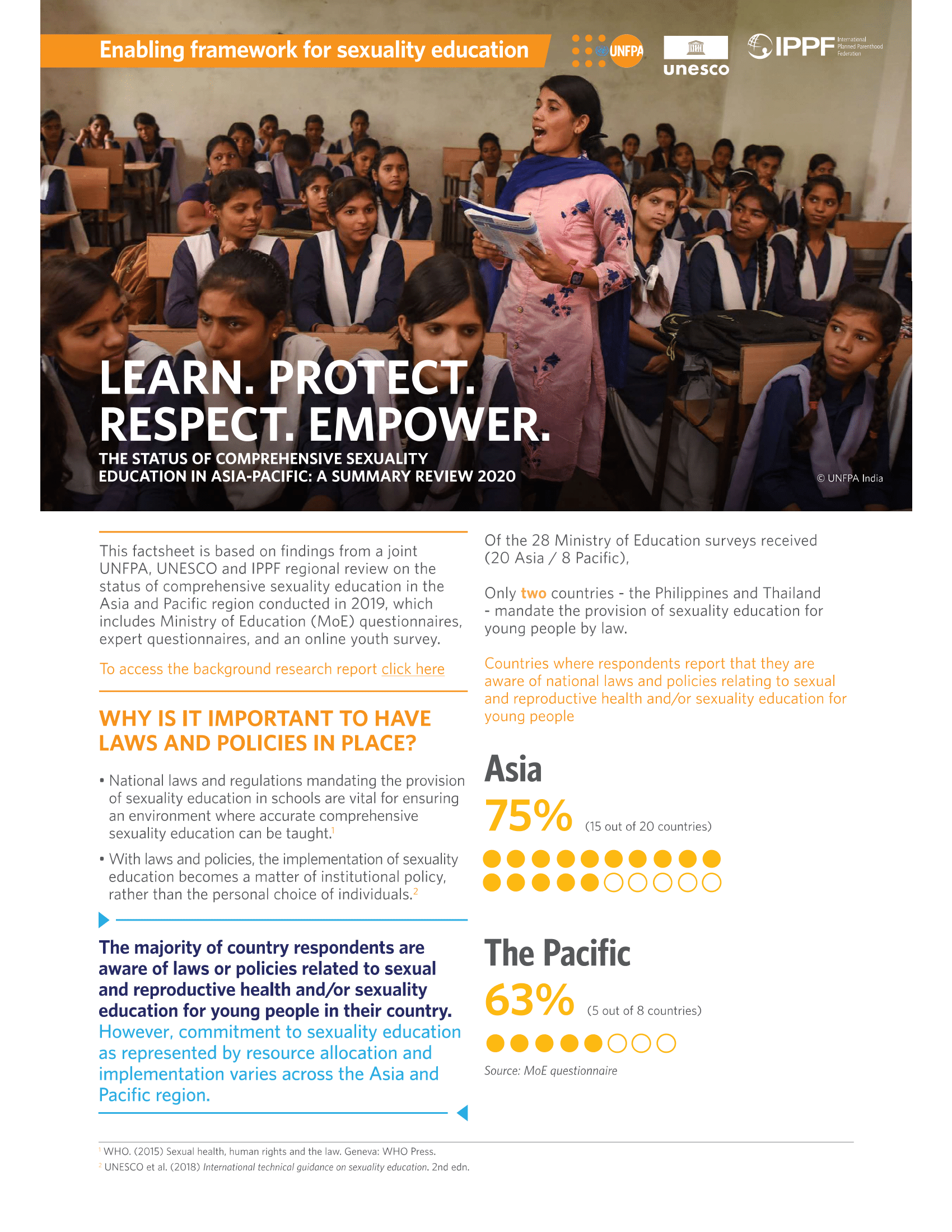
Enabling framework for comprehensive sexuality education
This factsheet is part of the review, LEARN. PROTECT. RESPECT. EMPOWER. The Status of Comprehensive Sexuality Education In Asia-pacific: A Summary Review 2020. School-based age-appropriate comprehensive sexuality education (CSE) is an effective means of reaching a large population of children and young people, particularly where rates of school participation are high. This overview of the status of in-school CSE in Asia and the Pacific provides a strong evidence base on the reach and impact of this across the region.
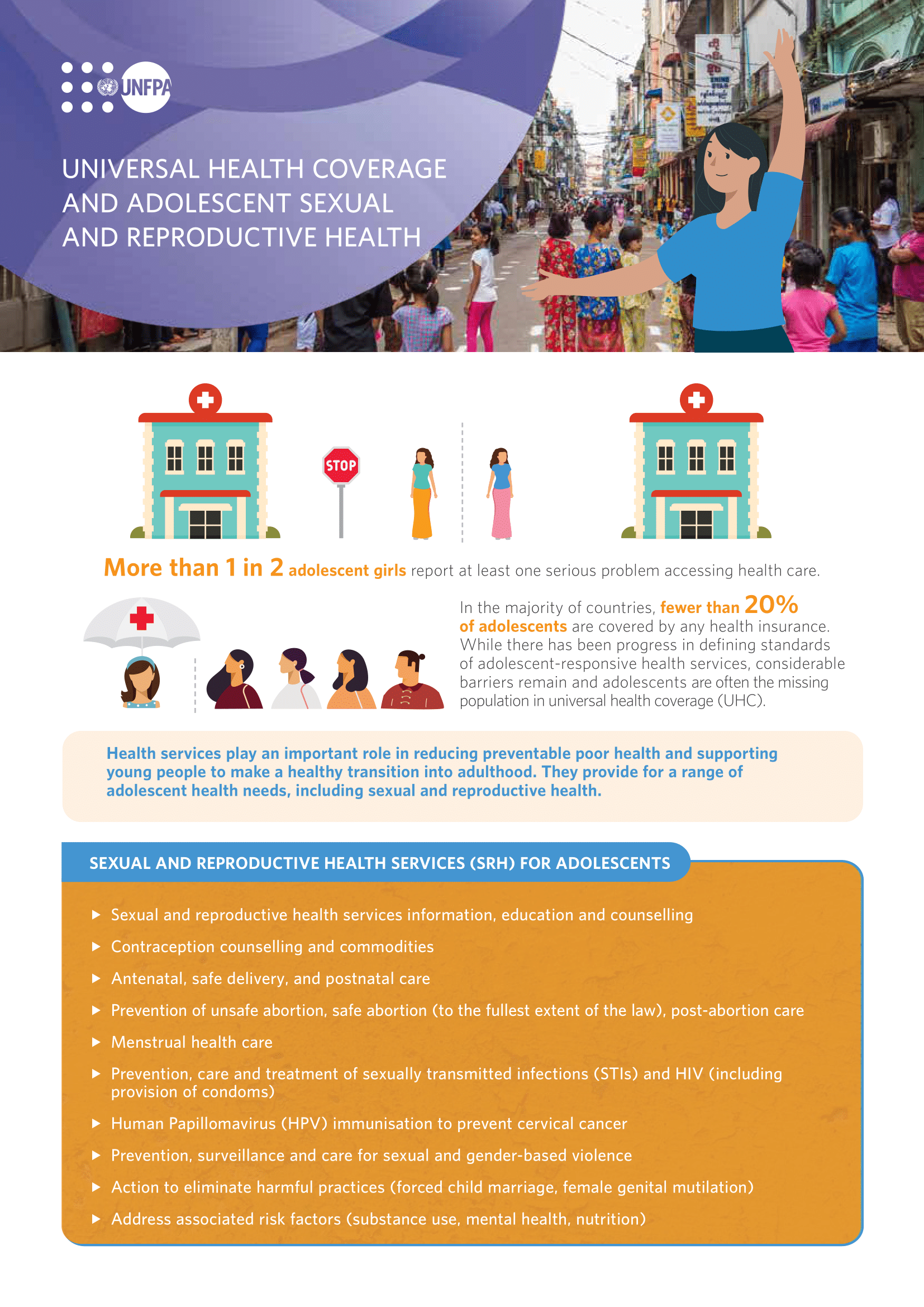
Universal Health Coverage and Adolescent Sexual and Reproductive Health
This factsheet is part of the report, My Body is My Body, My Life is My Life: Sexual and reproductive health and rights of young people in Asia and the Pacific that highlights the current status of young people’s sexual and reproductive health and rights (SRHR) and examines key SRHR priorities in Asia and the Pacific to support informed policy, programming and advocacy.
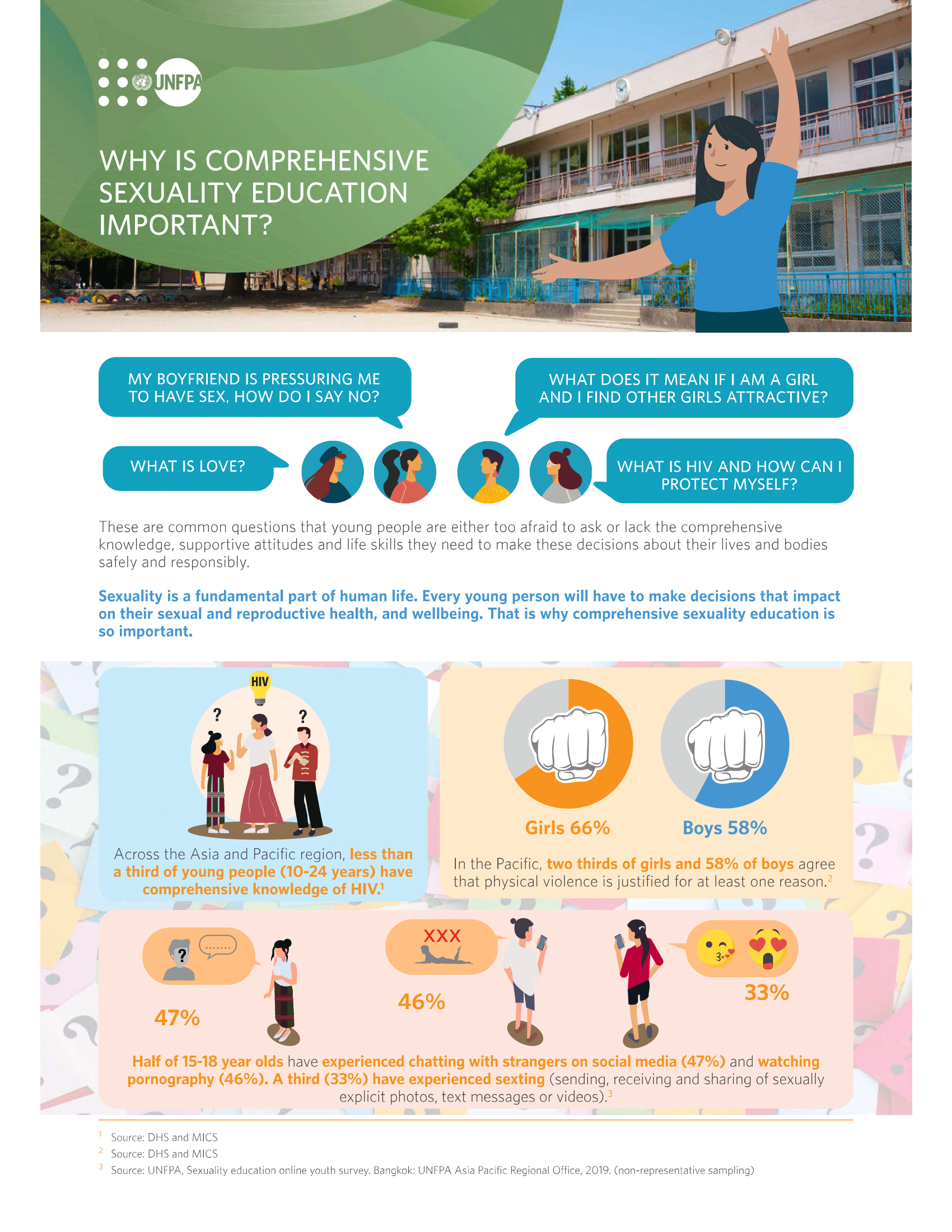
Why is Comprehensive Sexuality Education Important?
This factsheet is part of the report, My Body is My Body, My Life is My Life: Sexual and reproductive health and rights of young people in Asia and the Pacific that highlights the current status of young people’s sexual and reproductive health and rights (SRHR) and examines key SRHR priorities in Asia and the Pacific to support informed policy, programming and advocacy.
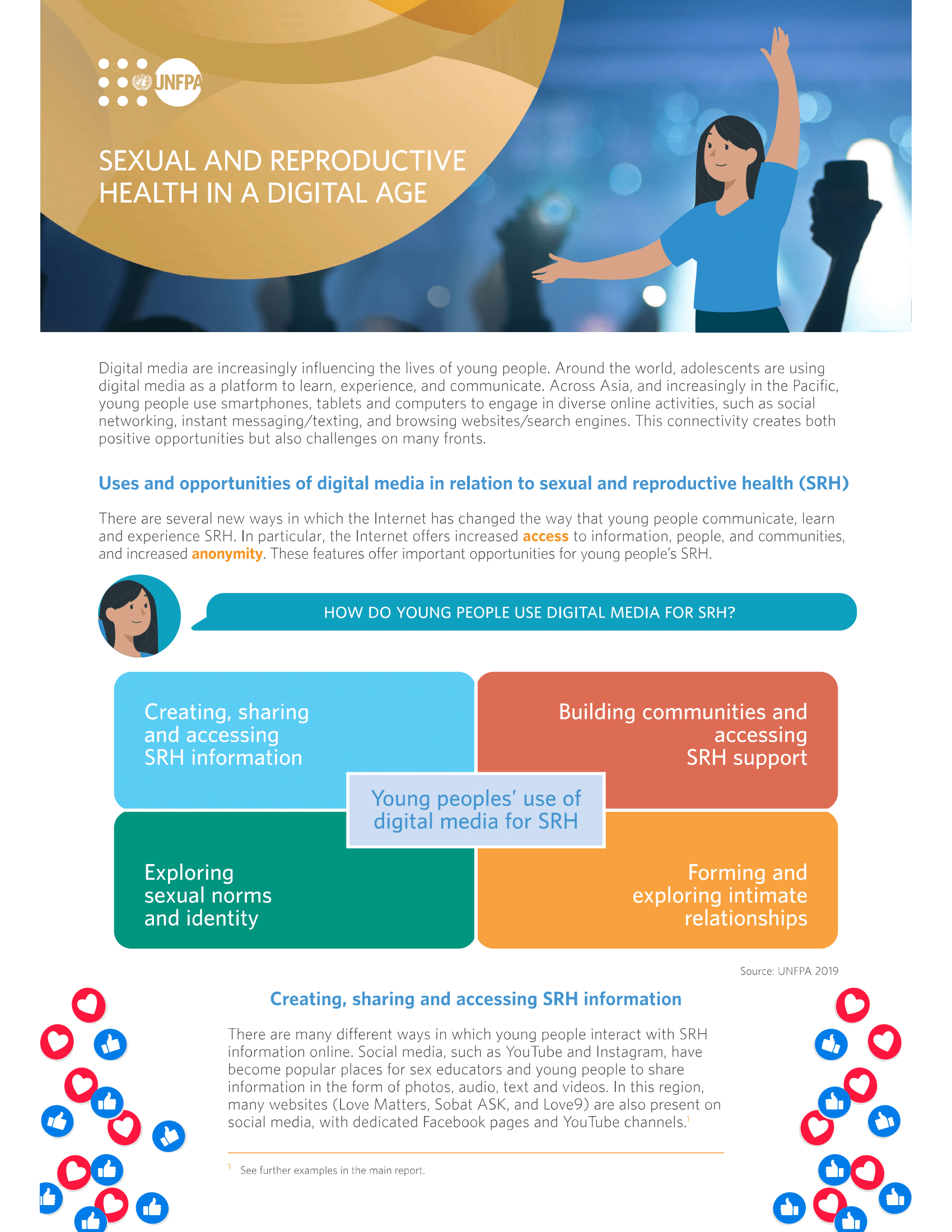
Sexual and Reproductive Health In A Digital Age
This factsheet is part of the report, My Body is My Body, My Life is My Life: Sexual and reproductive health and rights of young people in Asia and the Pacific that highlights the current status of young people’s sexual and reproductive health and rights (SRHR) and examines key SRHR priorities in Asia and the Pacific to support informed policy, programming and advocacy.
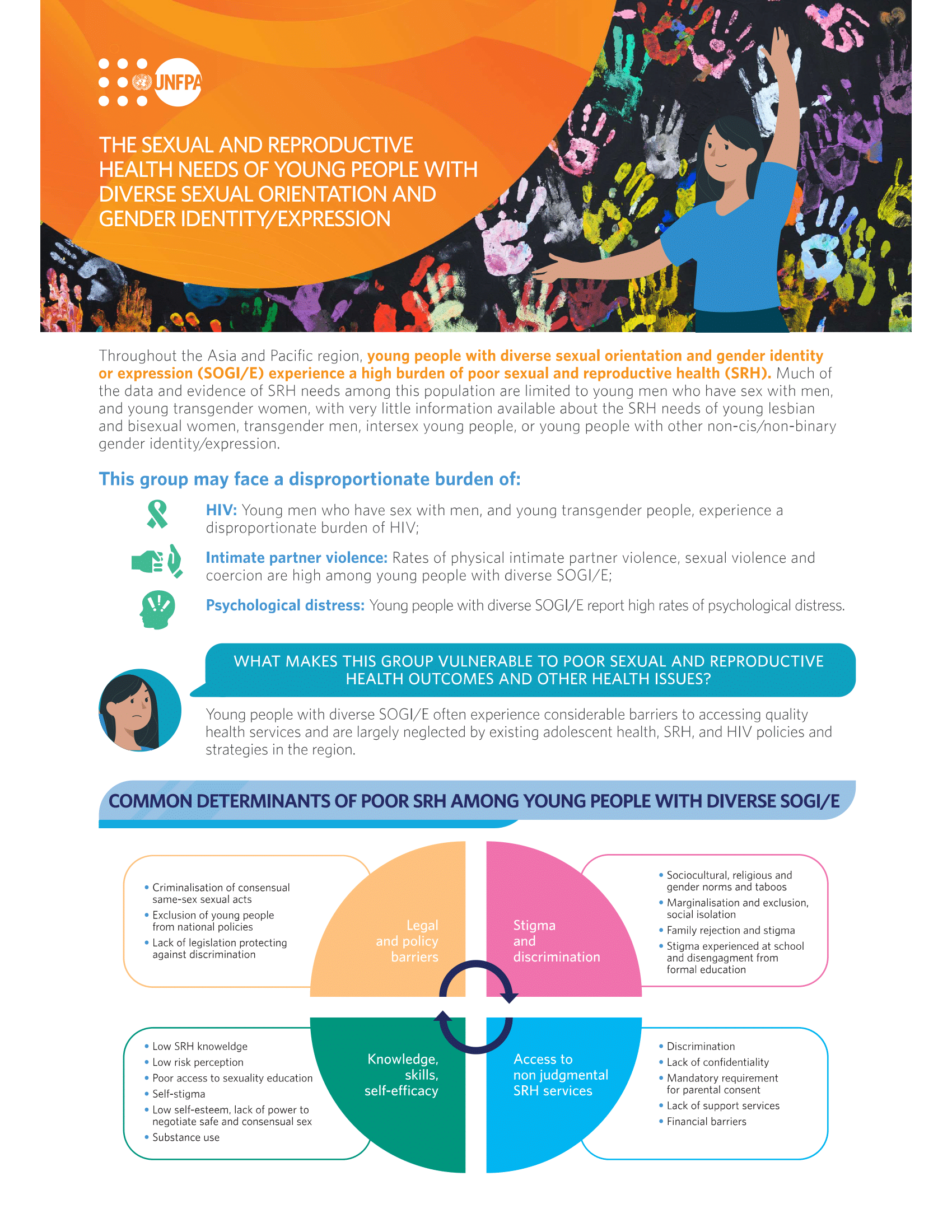
The Sexual and Reproductive Health Needs of Young People with Diverse Sexual Orientation and Gender Identity/ Expression
This factsheet is part of the report, My Body is My Body, My Life is My Life: Sexual and reproductive health and rights of young people in Asia and the Pacific that highlights the current status of young people’s sexual and reproductive health and rights (SRHR) and examines key SRHR priorities in Asia and the Pacific to support informed policy, programming and advocacy.
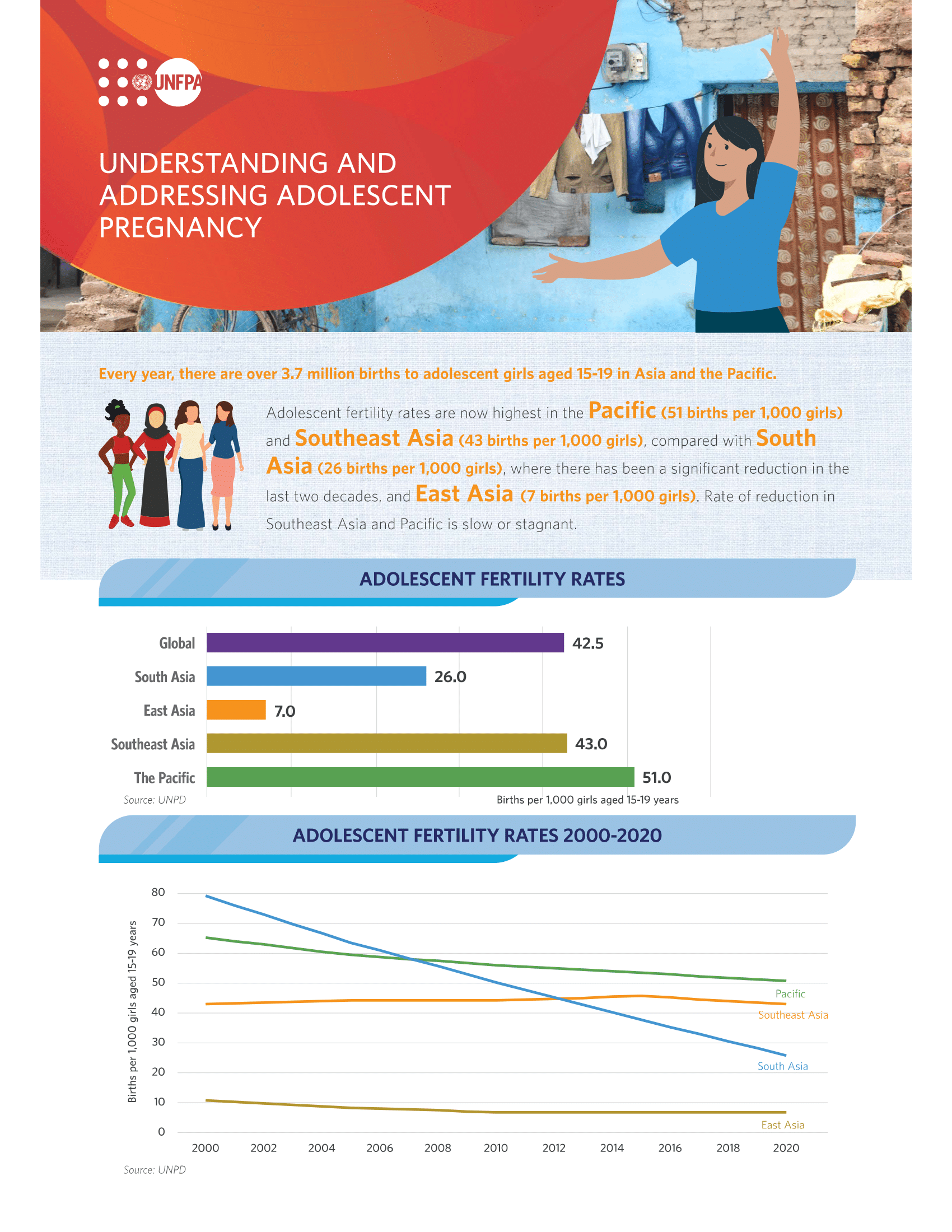
Understanding and Addressing Adolescent Pregnancy
This factsheet is part of the report, My Body is My Body, My Life is My Life: Sexual and reproductive health and rights of young people in Asia and the Pacific that highlights the current status of young people’s sexual and reproductive health and rights (SRHR) and examines key SRHR priorities in Asia and the Pacific to support informed policy, programming and advocacy.